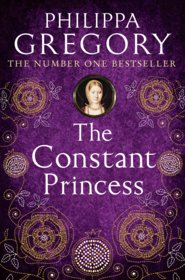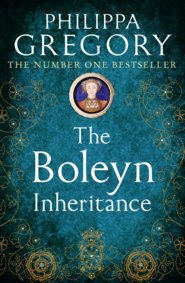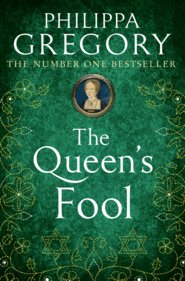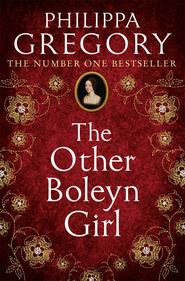По всем вопросам обращайтесь на: info@litportal.ru
(©) 2003-2025.
✖
Earthly Joys
Настройки чтения
Размер шрифта
Высота строк
Поля
‘Oh, no! Nothing to disturb a man’s quiet,’ George replied hastily. ‘She’ll make an obedient wife, I don’t doubt. But two grown women and only one kitchen to order …’ He broke off. ‘It’s sometimes hard to keep the peace. Shall you call the banns at the church here?’
John nodded. ‘And I’ll take a cottage for us in the village. I shall be between Theobalds and my lord’s new house for some time. Elizabeth will like to be near her family when I am away. I shall have to travel abroad to seek trees and plants, as soon as Hatfield is ready. I am to go to the Low Countries and buy their bulbs, I am to go to France and buy their trees. I am planning an orangery where the tender trees can be reared in winter.’
‘Yes, yes. Well, Elizabeth will want to know all about it.’
John was reminded that his new kindred had little interest in gardening. ‘And I shall be paid a good wage,’ he repeated.
George hesitated for a moment, looking at his future son-in-law. ‘By God, you’re a cool fish, Tradescant,’ he said critically. ‘Or have you been banging the ladies of the court all this time and only now thought of Elizabeth?’
John found himself flushing. ‘No. You misunderstand me. I have always been intending to come for Elizabeth. It was always agreed that when I had enough money to buy a house, and a little land, then we would marry; and not before. I was not able to offer her a house before now.’
‘Didn’t you think you might chance it?’ George asked curiously.
‘And you and your wife?’ John demanded, stung. ‘How much of a chance did you take?’
It was a shrewd blow. The whole of Kent knew that his wife had come to him with a farm and a handsome fortune from her husband, Elizabeth’s father, and a widow’s jointure from the husband before that. George nodded abruptly and went to the door.
‘Elizabeth!’ George shouted into the hall, and then turned back to John. ‘Shall you want to be on your own with her?’
John found himself suddenly embarrassed. ‘I think so … perhaps … or you could stay?’
‘Speak for yourself, man,’ George said. ‘It’ll hardly come as a surprise!’
They heard her quick footsteps coming across the wooden floor of the hall. George went to meet her.
‘Never fear!’ he whispered. ‘He has come for you at last. He has a good wage, and his future is secured. He’s to buy a cottage here, in the village. He’ll tell you himself. But you’re to be a wife, Elizabeth.’
The colour rushed into her face and then drained away again. She nodded gravely, and stood for a moment in thought, her eyes downcast. She was saying a silent prayer of thanksgiving. There had been times in the long years of waiting that she had thought he had broken faith with her, and would not come. Then her head went up and she went with her quick steady steps to the parlour.
John was at the window again, looking at the apple trees. When she came in he turned. For a moment he saw not the grave Elizabeth in her sober Puritan dress; but little Cathy the serving maid in her mob cap with her gown cut low over her plump breasts, and her inviting smile. Then he put his hands out to Elizabeth, drew her to him and kissed her gently on the forehead.
‘I can marry you,’ he said, as if it were the conclusion to a business arrangement which had been tediously delayed.
‘Thank you,’ she said coolly. She wanted to tell him that she had been waiting for this moment ever since her father had come to her and folded her in his arms and said quietly: ‘I have got you the gardener, my dear. You will be John Tradescant’s wife as soon as he has saved enough to marry.’ She wanted to tell him that in the nightmare summer when her little sister and then her father sickened of plague and then died, she had prayed every night for John Tradescant to come for her, like a hero in a romance, to take her away from the fear of sickness and from the depths of mourning. She wanted to tell him that she had waited and waited, while her mother put off her grief and gleefully remarried. That she waited while the newlyweds kissed before their fireside. That she waited though she thought he might never come, and that, with her father dead and a hard-hearted mother who used her labour and never paid her, there would be no-one to hold John Tradescant to his binding promise to marry.
She waited, in the end, because she was in the habit of waiting, because there was no escape from waiting, because there was nothing else she could do. Elizabeth was twenty-seven years old, no longer a girl in her first looks. She had been waiting for John for six long years.
‘I hope you are glad?’ John retreated to his place at the window. ‘Yes,’ she said carefully from her place at the door.
Three weeks later they were married at the parish church. They walked up the narrow path to the church door hand in hand; John could not stop himself noticing the yew trees, which were extraordinarily fine. One was growing like a castle with pretty pinnacle towers, the branches of the other fell like layers of cloth in a deep green dress. Elizabeth saw the direction of his gaze and smiled and patted his arm.
Her stepfather George Lance and Gertrude her mother were witnesses. Elizabeth wore a new gown of white, instead of her usual grey, and John wore a new suit of brown with white and crimson slashings in the sleeve. The sunlight through the stained-glass windows dappled the tiles on the floor with splashes of additional colour. John stood tall and made his responses in a firm voice, and felt with pleasure Elizabeth’s little hand resting lightly on his arm.
There were those waiting outside the flint-walled church to see the couple who complained that the bridegroom was dressed too fine for a working man. They murmured that he was getting above his station and that the slashings in his sleeve were made of silk as if he thought himself to be a gentleman. But then the wedding ale at the back door of the farmhouse was strong and sweet, and the grumblings gave way to a roar of ribald jokes by mid-afternoon.
Gertrude had laid on a grand wedding dinner with three different sorts of cooked meats and half a dozen puddings. John found himself beside the vicar, the Reverend John Hoare, at the dinner table and took his compliments and accepted a toast and then tried to make stilted conversation.
‘You serve a great lord,’ the vicar commented. John warmed at once. ‘None greater.’
The Reverend Hoare smiled at his loyalty. ‘And he has put you in charge of the gardens of his new palace?’
John nodded. ‘He has done me that honour.’
‘Will you have to live at Hatfield? Or shall you keep a house at Meopham?’
‘I shall keep the house here,’ John said. ‘But I shall be much with my lord. My wife knows that his service must come first. Anyone who has the honour to serve a great man knows that his lord comes before everything.’
The vicar assented. ‘The master comes before the man.’
‘I wonder if you can tell me one thing though, vicar?’ John asked.
The vicar at once looked cautious. These were not the times for theological enquiry. Sensible men confined themselves to the catechism and the commandments and left questions to heretics and papists who would have to pay with their lives if they got their answer wrong. ‘What thing?’ he asked.
‘It puzzles me that God should have made so many things the same, and yet just a little different,’ Tradescant confided. ‘So many things He has made which are the same; but differ only in shape or in colour. And I cannot understand why He should make the difference. Nor how Eden can have looked, crammed with such – ‘ he sought the word for a moment ‘- such diversity.’
‘Surely every rose is the same,’ the vicar replied. ‘It differs only in colour. And a daisy is a daisy wherever it grows.’
John shook his head. ‘You wouldn’t say that if you had looked as closely as I. To be sure they have their families, a rose is still a rose, but there are hundreds of different kinds of roses,’ he explained. ‘Every county has a different sport. They have different shapes of petals, they have different numbers of petals, they have different preferences as to light and shade. Some are scented, they tell me, and some are not. And sometimes I think I see them being made. Making themselves while I watch, almost.’
‘What d’you mean?’
‘When they throw a sport, when from one main stem you can see another grow different, and if you take the different one you
can breed another from it – God. didn’t make that, surely? I made it.’
The vicar shook his head but John went on. ‘And daisies are not the same wherever they grow. I have seen a Kent daisy different from a Sussex daisy and a French daisy which was bigger and tipped with pink. I don’t know how many daisies there are. A man would have to travel the whole world over with his eyes on his boots all the way to be sure. Why should such a thing be? Why should God make hundreds of the same thing?’
The vicar glanced around for rescue but nobody was looking his way. ‘God in His wisdom gave us a world filled with variety,’ he began.
He was relieved to see that Tradescant was not arguing. This was not a man who was quarrelsome in his cups. This was a man urgently in quest of a truth. The vicar had an odd sense of a man in search of his destiny. Tradescant was concentrating, passionately concentrating, with a deep line engraved between his brows as he listened to the vicar’s answer. ‘It was God’s great wisdom to give us many things of great beauty. We cannot question His choice to give us many things which are only a little different, one from another, if you tell me that is how they are.’
Slowly John shook his head. ‘I don’t mean to question my God,’ he said humbly. ‘Any more than I would question my lord. It just seems odd to me. And God did not make all things at once in Eden, and give them to us. I know that cannot be, though I read it in the Bible, because I see them changing from season to season.’
The vicar nodded, quick to move on. ‘That is no more than a craftsman making a table, I suppose. It is using the skills which God has given you and the materials which He has provided to make something new.’
John hesitated. ‘But if I made a new daisy, say, or a new tulip, and a man came along and saw it growing in a garden, he would think it was the work of God and praise Him. But he would be wrong. It would have been my work.’
‘Yours and God’s,’ the vicar said smoothly. ‘For God made the parent tulip from which you made one of another colour. Undoubtedly it is God’s purpose to give us many things of beauty, many things which are rare and different and strange. And it is our duty to thank Him and praise Him for them.’
John nodded at the mention of duty. ‘It would be a man’s duty to gather the varieties?’ he asked.
The vicar drank a little wedding ale. ‘It could be,’ he said judiciously. ‘Why would a man want to collect varieties?’
‘To the glory of God,’ John said simply. ‘If it is God’s purpose that we should know His greatness by the many varieties of plants that are in the world now, and that can be made, then it is to the glory of God to make sure that men know of His abundancy.’
The vicar thought for a moment, fearful of heresy. ‘Yes,’ he said cautiously. ‘It must be God’s will that we know of His abundancy, to help us to praise Him.’
‘So a man making a garden, a fine garden, is like a man making a church,’ John said earnestly. ‘Showing men the glory of God as a stonemason might carve the glory of God into his pillars and gargoyles.’












